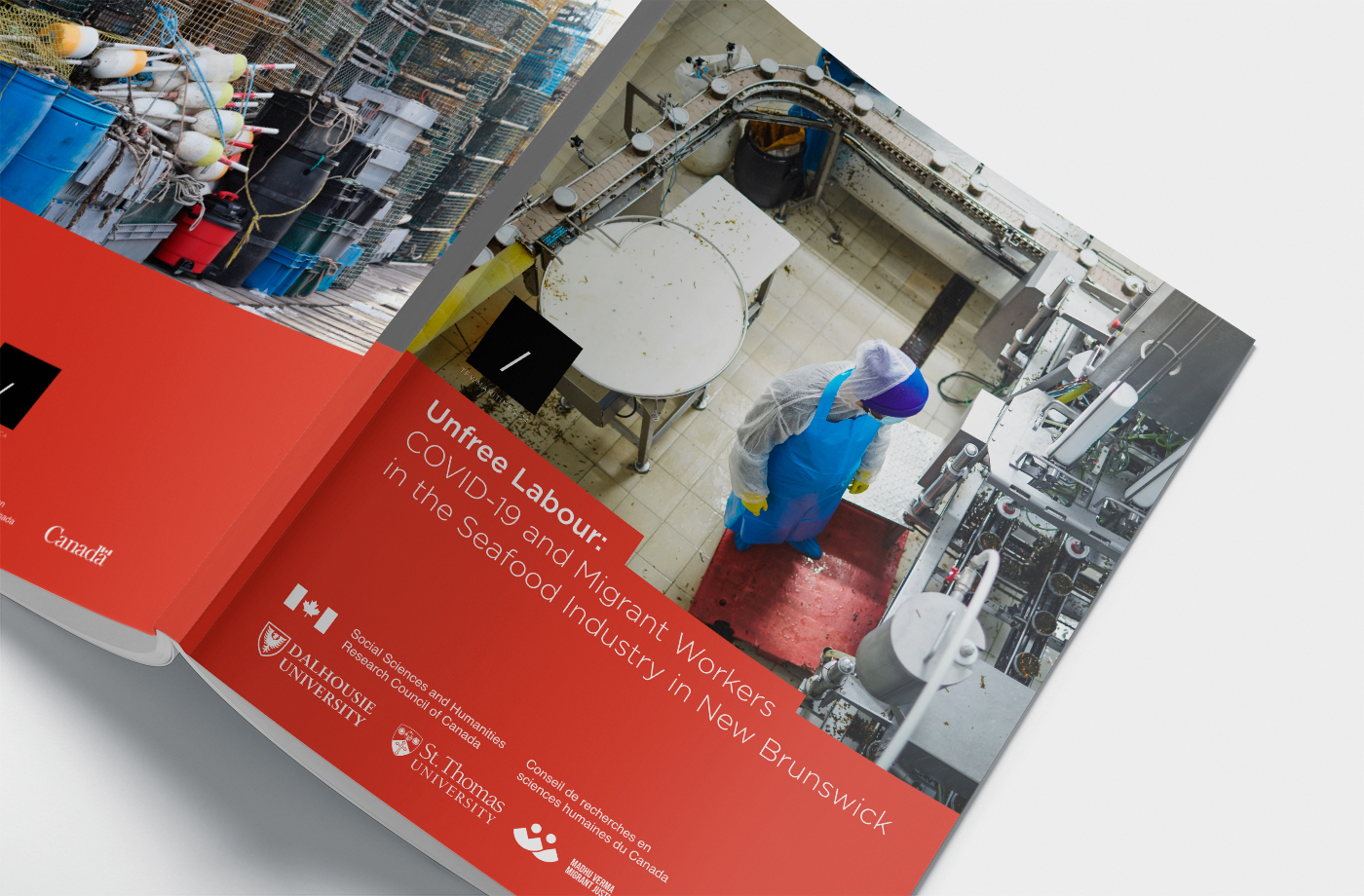Unfree Labour
COVID-19 and Migrant Workers in the Seafood Industry in New Brunswick
New research reveals precarious occupational and living conditions for seafood processing migrant workers in New Brunswick.

Unfree Labour: COVID-19 and Migrant Workers in the Seafood Industry in New Brunswick is the second report in a series of research projects by the Migrant Workers in the Canadian Maritimes partnership. Using desk research and 15 interviews with migrant workers to explore how COVID-19 has affected their health and safety, Unfree Labour found temporary foreign workers in New Brunswick to experience:
- • Exploitative and poorly regulated recruitment practices
• Unsuitable, expensive and crowded housing
• Precarious, unpredictable, and dangerous labour conditions
• Limited access to health care
• Xenophobia and unfair treatment at work and in the community
Read the full report here: Unfree Labour: COVID-19 and Migrant Workers in the Seafood Industry in New Brunswick
This is the second in a series of research projects carried out by Temporary Foreign Workers Workers in the Canadian Maritimes, a research and knowledge dissemination platform coordinated between Dalhousie University, St. Thomas University and Cooper Institute. Temporary Foreign Workers in the Canadian Maritimes is a collaboration among community allies: The Filipino-Canadian CommUNITY of New Brunswick (FCNB); KAIROS: Canadian Ecumenical Justice Initiatives (New Brunswick); United Food and Commercial Workers Union (UFCW); and the Madhu Verma Migrant Justice Centre (New Brunswick) and intends to examine the health and safety of temporary foreign workers in this region.
